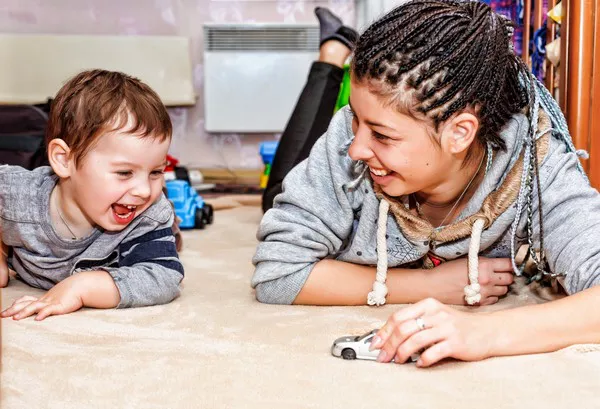In the delicate early stages of your newborn’s life, it’s essential to ensure their comfort and well-being. One of the primary concerns for parents is understanding how to recognize if their newborn is feeling cold. Babies are particularly sensitive to temperature changes, and it’s crucial to keep them cozy and comfortable. In this article, we will explore the signs that indicate your newborn might be feeling cold and provide you with practical tips on how to keep your little one snug and warm.
1. Understanding Newborn Cold Signs
To ensure your baby’s well-being, it’s vital to be aware of the signs that suggest they might be feeling cold. Newborns can’t regulate their body temperature as effectively as adults, so they rely on us to keep them warm. Some common signs of cold in infants include:
a. Chilly Skin
One of the most apparent signs is your baby’s skin feeling cold to the touch. Gently feel their hands, feet, and cheeks to check for temperature irregularities.
b. Excessive Crying
A cold baby might cry more than usual. Pay attention to changes in their crying patterns, especially if it’s accompanied by other cold-related symptoms.
c. Shivering or Trembling
If your baby is shivering or trembling, it’s a clear indication that they need more warmth. These reflexive movements are their body’s way of generating heat.
d. Pale or Mottled Skin
A pale or mottled complexion can be a sign of cold in newborns. Check their skin color, particularly in their extremities.
e. Lethargy and Weakness
A cold baby may become lethargic and appear weaker than usual. If you notice a significant decrease in their activity levels, it’s a red flag.
2. Maintaining Your Baby’s Body Temperature
Now that we’ve discussed the signs, let’s explore how you can ensure your newborn stays comfortably warm:
a. Dress in Layers
Layering is key to keeping your baby at the right temperature. Dress them in soft, breathable fabrics like cotton and use onesies, footed sleepers, and hats to trap warmth without overheating.
b. Appropriate Room Temperature
Maintain a comfortable room temperature between 68°F and 72°F (20°C to 22°C). Use a room thermometer to monitor it and adjust as needed.
c. Swaddle Your Baby
Swaddling can provide a sense of security and warmth to your newborn. Ensure you swaddle correctly, allowing enough room for hip movement.
d. Use Baby Blankets
Baby blankets can be used for additional warmth. Make sure they are lightweight and breathable, preventing overheating.
e. Warm the Crib or Bassinet
To create a cozy sleeping environment, warm the crib or bassinet slightly with a hot water bottle or heating pad, but ensure they are removed before placing your baby inside.
f. Skin-to-Skin Contact
Holding your baby close in skin-to-skin contact can help regulate their body temperature. This also fosters bonding and comfort.
3. Prioritizing Your Baby’s Comfort
In addition to keeping your newborn warm, it’s equally important to prioritize their overall comfort:
a. Feeding on Demand
Ensure your baby is well-fed as this can help maintain their body temperature. Breastfeeding or bottle-feeding on demand is essential.
b. Maintain Adequate Hydration
Dehydration can make your baby more susceptible to feeling cold. Keep them hydrated, especially during hot weather.
c. Regular Check-Ups
Schedule regular check-ups with your pediatrician to monitor your baby’s health and ensure they are growing and developing properly.
4. Recognizing Signs of Overheating
While it’s essential to keep your newborn warm, it’s equally important to avoid overheating. Signs of overheating include sweating, flushed skin, and rapid breathing. Pay attention to your baby’s cues to strike the right balance between warmth and comfort.
In conclusion, understanding how to recognize if your newborn is cold is crucial for their well-being. By being attentive to signs of cold, dressing them appropriately, and ensuring their overall comfort, you can provide the best care for your precious bundle of joy. Remember that every baby is unique, so trust your instincts and seek professional guidance if you have concerns about your newborn’s health. Your baby’s comfort and safety are paramount as you embark on this incredible journey of parenthood.


